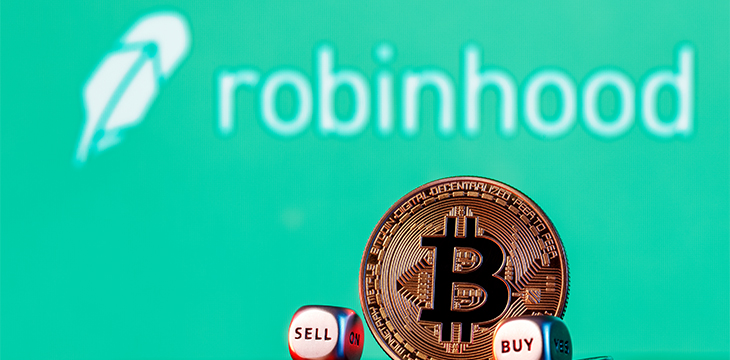|
Getting your Trinity Audio player ready...
|
It is easy to dog-pile on the latest target of social media’s outrage. The satisfaction is alluring; vindication can be yours with just a couple of clicks! You can easily support the misinformation about Dr. Craig Wright, shame the people involved in the death of Harambe, share the hate on Johnny Depp (only to take it back later), protest against Wendy’s cutting spicy nuggets, or join cancel culture for today’s catastrophe. This is not to say that there are no reasonable causes for outrage, but when everything is a cause for moral outrage, effectively, none of it is. The rage also retargets quickly, most often leaving the problems without a complete resolution. Did you know that the hunt for Joseph Kony stopped in 2017?
Keeping the statements above in mind, I want to offer the unpopular opinion that Robinhood’s recent decisions are reasonable. Robinhood (NASDAQ: HOOD) is under no obligation to provide market access as its users demand. U.S. Securities and Exchange Commission (SEC)-regulated broker-dealers already restrict thousands of securities; it is only because of the social media megaphone that we care more about GME. While you may dislike their actions, they are not deserving of the social media mob. As this is a Bitcoin-focused medium, let us focus on the digital currency-related decision to restrict access to digital currency purchases via “instant deposit.”
Robinhood is the trademark name we use to refer to all of the companies that make the Robinhood experience. Digital currency trading is done exclusively through Robinhood Crypto, separating it from the traditional broker-dealer side. This is a common strategy for many firms looking to have ‘crypto’ space exposure. Suppose you consider the various risks that must be attuned for a successful broker of traditional investments. In that case, digital currency-based risks are just a different animal worthy of being quarantined to a subsidiary.
We expect digital currency trading to have around-the-clock access, but in providing this, there are a plethora of operational risks that the average user has no appreciation of. Most digital currency brokers work with many liquidity providers (LPs) that stream quotes alongside internal customer orders. The trades that match to LPs get batched and typically settle once per day as a net settlement. These settlements are very complicated for the broker, and there are too many reasons to detail much here (but we’re gonna try a few!)
Availability and 24-hour trading create immense fluctuations in intra-day credit risks, so much that most broker-LP agreements have clauses for special settlements under certain conditions (most notably when settlement has met a maximum threshold.) Under these conditions, the broker (or LP) would prevent quotes, thinning the broker’s order book. This also makes new trades more likely matched with the (now fewer) other LPs, snowballing the settlement crunch. Special settlements happen under the most extreme market conditions and need to be resolved ASAP.
The scenario is complicated further when the special settlement is triggered to execute after-hours (not a term many Bitcoin-heads know about.) To settle USD (sticking with the States here), most of these digital currency broker subsidiaries use platforms like Signature Bank’s Signet or Silvergate’s Exchange Network. These are likely not platforms where the parent company does most of their banking (a platform like J.P. Morgan is more likely). This means that although the USD-settling platforms can technically facilitate the after-hours settlements, the bulk of liquidity will be tied up in traditional banking.
A risk-based decision must be made to determine the amount of operating capital to have sitting idly in the after-hours platform. Among many things, this decision also includes the amount of risk to be absorbed by allowing “instant deposits,” which are just after-hours ACH requests (a system so slow that it rivals trying a low-fee BTC transaction.) For example, what happens when thousands of users conspire to flood the product with an unprecedented amount of instant deposits and coordinate orders of DOGE? It breaks! (duh!) No risk model will be able to handle a near-instant 130x trade volume spike that can support both an open input of USD and a closed output after-hours.
Further, digital currency brokers are responsible for safeguarding coins and typically utilize cold storage that may not be accessible after-hours. The same types of liquidity crunches for USD can happen for the settlement of digital currencies too. In complicated settlements, a broker can always back itself into a “rob Peter to pay Paul” scenario, but it helps if the coins are not already on a fractional reserve. If you did not already know, many digital currency brokers would monetize the assets outside of trading. Much to Robinhood’s deserved credit, they do not. The underappreciated Custody Item (#9) of the Robinhood Crypto User Agreement, explains that all digital currencies purchased are stored and held by Robinhood Crypto in wallets FBO their customers.
Limiting digital currency purchases to only cleared funds was not a choice by Robinhood to put anyone down, or manipulate the market, but a necessary decision to continue operations in a controlled environment. If we want a better product, we’re going to have to build one. Might I suggest a real-time gross settlement system? If only there were some ledger-y blockchain-y thing already capable of the scaling to meet that kind of settlement demand…
Watch: CoinGeek New York panel, Blockchain for a Better Supply Chain & Sustainability

 02-19-2026
02-19-2026 




